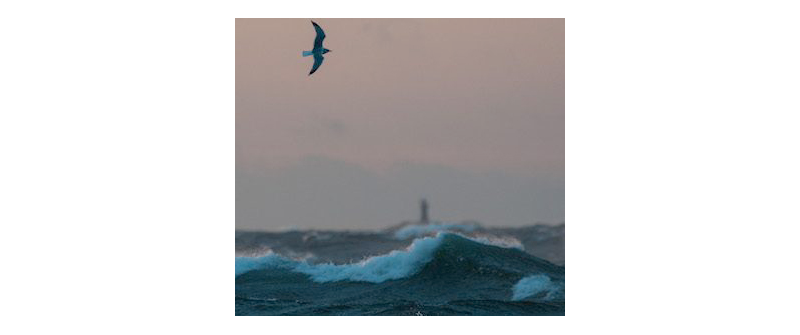Adversity and the Ocean

Recently in San Francisco, I attended the exhibit “Soul of a Nation – Art in the Age of Black Power 1963 -1983” at the de Young Museum -- art made by black artists during two pivotal decades when issues of race and identity dominated and defined both public and private discourse in the United States. It was a heady time for politics, an explosion of black voices – Martin Luther King, Malcolm X, Eldridge Cleaver, and many more – and a comparable exposure of black artists whose visual language expressed the anger and protest against suppression, racism, and injustice. The exhibit was powerful and provocative, art beyond propaganda, palpable outrage and creative declaration that the adversity felt and lived within the black community could be endured no more.
Adversity. It’s an odd word: a shape shifter, ranging from hard luck to hard times, from a difficult set-back to a permanent, oppositional state of being. There were very few African or Asian visitors in the galleries. The audience was people like me who, in truth, have known very little adversity at all. Africans and Asians and Latinos continue to face the situation every day, still; they don’t need to come to an art museum to feel or understand.
The ocean is a scape for adversity. W hen humans intrude, leave the certainty of the known, they step into a world that is contradictory, unpredictable, and unwelcoming to the intrusion of a small craft attempting to get from one place to another in such an adverse medium. The winds are adverse. The tides are adverse. The waves are adverse. In such a situation, survival demands order, cooperation, knowledge, experience, and the subversion of any fixed terrestrial ideas or social prejudices, any inhibition to getting from here to there. Ship’s crews were united in the face of adversity or they did not survive. Seamen came from all parts of the world, all races, and still do, and they are unified by proven means of discipline, harmony, cooperative work, and patterns of behavior that have proven to overcome adversity, even its most violent expression, without bias, without exclusion, without a necessary integration of strength, skill, determination, and respect for those alongside, aboard.
It would be silly to say that there was no racism at sea. But the accounts of accord, shared culture and traditions, and the certainty that no single force can better the collective force of many, no matter what their origin or color of their skin was an operative paradigm. But what has always struck me about sea experience, however limited mine might be, is that the ship is both reality and symbol for education: the captain teaches the mate, the mate teaches the crew, the crew teaches each other, in a continuous curriculum of experience inclusive of what we today call physics, biology, chemistry, engineering, history, politics, sociology, economics, psychology, literature, and art. Thus, on a ship, as in successful society, opportunity, commitment, and work counter adversity, the entire crew working together toward successful passage through any challenge.
A ship where adversity reigns is a slave ship, an inequitable imposition of one system on another, an involuntary engagement, and a social tyranny with inevitable physical and spiritual distress and disruption. The cargo, being racially discriminated, is subject to the most adverse conditions, dehumanized, commodified, all the aspirations and values of civilization for them abandoned, and resultant, discriminatory cultural conditions established to be continued on shore, human beings relegated to exclusion by race and to a reality of social injustice. Who would not be angry and outraged and politically motivated to protest and bring such violence to an end?
The lessons of the ocean are not just a metaphor. They are real, and they are being lost as we continue to permit and condone racism on land, contemporary events that are a sad continuum with terrible consequence for civility and harmony today. We are building walls. We are separating by origin. We are excluding by race. These are terrestrial behaviors that must not endure. We cannot forget the wisdom of the ocean. We cannot segregate the crew. We must not give in to adversity.

PETER NEILL is founder and director of the W2O and is author of The Once and Future Ocean: Notes Toward a New Hydraulic Society. He is also the host of World Ocean Radio upon which this blog is inspired.
- Login to post comments
-


